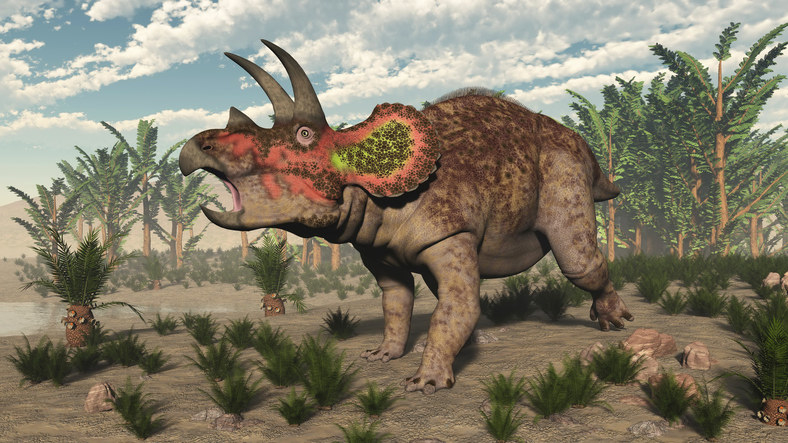It's pretty well established that the dinosaurs were made extinct when an asteroid hit Earth, about 66 million years ago. But exactly how that impact killed them has been a bit of a mystery.

The asteroid was at least 10km wide and landed in what is now Mexico's Yucatán peninsula, where it exploded with the force of a billion atom bombs.
The impact killed the dinosaurs – with the exception of the group that became birds – among an estimated three-quarters of all of Earth's species. But it's not exactly clear how.
The mystery is why the dinosaurs died, but other creatures – such as the crocodilians, the ancestors of modern crocodiles and alligators – survived.

One hypothesis is that the impact threw lots of sulphuric acid vapour into the atmosphere, causing acid rain and global darkness and cold, which killed plants and starved the dinosaurs. But that would, presumably, have killed the crocodilians, not to mention turtles and snakes, as well as other reptiles.
Now a team of palaeontologists think they have the answer. They say that it was ordinary soot that killed the dinosaurs.

The study, published today in the journal Scientific Reports, hypothesizes that because the Yucatán peninsula is rich in oil, the impact released huge amounts of smoke and soot into the atmosphere.
The researchers looked at two sites, one in Haiti, not far from the impact, and one in Spain, much farther away. They found hydrocarbon deposits from the time of the impact that suggested about 1.5 billion tonnes of soot was hurled into the atmosphere by the blast.
"It's very interesting," Dr Paul Barrett, a palaeontologist at London's Natural History Museum who was not involved in the research, told BuzzFeed News. "One of the big unknowns about [the extinction of the dinosaurs] is the kill mechanisms." This goes some way to answering the question, he says.
It would explain why crocodilians, and other species, survived.

The soot would have darkened Earth's skies, just as the sulphuric acid would have done. But it would have done so less dramatically.
"The world got cooler and a lot drier, and animals that needed to live in areas that were warmer suffered because they couldn’t cope with the drop in temperature," says Barrett. "But it wouldn't have got so much colder towards the equator, and there was not a total collapse in photosynthesis." Crocodiles' ancestors tended to live in equatorial regions, where it was warmer, and where the droughts were less severe.
What's more, says Dr Kunio Kaiho, a palaeologist at Tohoku University in Japan and the lead author on the study, they often lived in freshwater rivers. "Survival is dependent on food, and the base of freshwater food webs is plant detritus," he told Buzzfeed News. Land-based dinosaurs, by contrast, relied on living plants, which were hit by the cooling and drought.
"The herbivorous dinosaurs ate the decreased number of plants, resulting in the plants disappearing," he says. "It's like overgrazing leading to desertification today."
This may have cleared up a big, and long-lasting, mystery.

Kaiho says that he is confident that his hypothesis is the "most likely reason" for the death of the dinosaurs.
Barrett agrees that the work is exciting. "We didn't know the actual physical changes that led to the global extinctions on sea and on land, what the big catastrophes were," he says. "Global darkness, tsunamis, global heating, wildfires have all been postulated as causes. This paper is trying to find a single source that can account for all these things, a single factor that can explain why it made some things go extinct but not others.
"It’s well-argued, and they've tried to get a lot of different types of information to get their argument right. Now it'd be nice to look at some more sites at different latitudes, to see if more data makes their hypothesis stronger."
